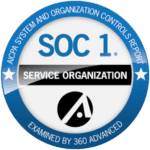In today’s fast-paced business world, the seamless integration of systems is essential for operational efficiency. Enterprise Resource Planning (ERP) systems play a pivotal role in managing core business processes, while freight management software ensures smooth logistics and supply chain operations. Combining these two systems can lead to enhanced productivity, better data visibility, and substantial cost savings.
Why Integrate ERP Systems with Freight Management Software?
Enhanced Data Visibility
Integrating ERP systems with freight management software ensures a centralized platform for real-time data tracking. This eliminates the silos often present between supply chain and finance departments.Improved Decision-Making
Real-time access to logistics and operational data enables managers to make data-driven decisions, such as optimizing delivery routes or adjusting inventory levels.Streamlined Processes
Integration reduces manual data entry, improving accuracy and saving time. Businesses can automate tasks like invoicing, shipment tracking, and freight auditing.
Key Benefits of Integration
Cost Savings
Automating freight management within your ERP system helps reduce errors, avoid duplicate payments, and optimize freight spend.Better Vendor Collaboration
Sharing a single source of truth ensures that vendors, carriers, and customers have accurate information at their fingertips.Scalability
As businesses grow, an integrated system allows for easier expansion without overhauling existing processes.
How to Successfully Integrate ERP with Freight Management Software
Choose the Right Freight Management Software
Select a platform that complements your ERP system. Ensure it supports key functions like shipment tracking, freight payment, and business intelligence tools.Focus on Customization
Each business has unique needs. Work with a team that can customize the integration to match your specific workflows.Work with Experts
Partnering with a logistics technology provider like Hatfield and Associates ensures a smooth implementation process. Their expertise in transportation management solutions can make the transition seamless.
Conclusion
Integrating ERP systems with freight management software is no longer a luxury—it’s a necessity. Businesses that embrace this synergy enjoy better efficiency, cost savings, and scalability. For customized logistics technology solutions, visit Hatfield and Associates.




